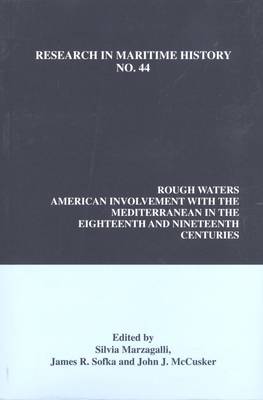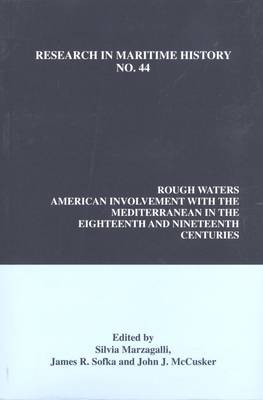
En raison d'une grêve chez bpost, votre commande pourrait être retardée. Vous avez besoin d’un livre rapidement ? Nos magasins vous accueillent à bras ouverts !
- Retrait gratuit dans votre magasin Club
- 7.000.000 titres dans notre catalogue
- Payer en toute sécurité
- Toujours un magasin près de chez vous
En raison de la grêve chez bpost, votre commande pourrait être retardée. Vous avez besoin d’un livre rapidement ? Nos magasins vous accueillent à bras ouverts !
- Retrait gratuit dans votre magasin Club
- 7.000.0000 titres dans notre catalogue
- Payer en toute sécurité
- Toujours un magasin près de chez vous
Rough Waters
American Involvement with the Mediterranean in the Eighteenth and Nineteenth Centuries
34,95 €
+ 69 points
Description
This study analyses the presence of American ships, merchants, and interests in the Mediterranean region in the first decades following the independence of the United States, and seeks to understand whether or not the English, Dutch, Scandinavians, and Americans invaded the region and its shipping industry in the eighteenth and nineteenth centuries. It considers the following topics: the benefit of American neutrality during the French Revolutionary wars which enabled the growth of their shipping activities; the organisation of protection for American ships post-independence, particularly from Barbary privateers; the diplomatic efforts of John Adams and Thomas Jefferson and the relationships of convenience fostered by American powers when requesting European assistance; the development of American consular services to assist merchants and captains; the avoidance of incidents through peace and commercial treaties through to ship seizures and crew enslavement; and the impact of the Tripolitanian War (or Barbary War) on American-Mediterranean shipping. The works in this volume attempt to determine whether or not these actions can be considered an 'invasion'. They explore the mutually beneficial aspects of American-Mediterranean trade whilst also considering the strength of the Mediterranean trade (particularly Greek) prior to American interference. It concludes by confirming the dual objectives of the American presence - to ensure open markets for their goods, and to enhance their political and military power against British, French, and North African regencies.
Spécifications
Parties prenantes
- Editeur:
Contenu
- Nombre de pages :
- 246
- Langue:
- Anglais
- Collection :
- Tome:
- n° 44
Caractéristiques
- EAN:
- 9780986497346
- Date de parution :
- 01-01-10
- Format:
- Livre broché
- Format numérique:
- Trade paperback (VS)
- Dimensions :
- 234 mm x 155 mm
- Poids :
- 399 g

Les avis
Nous publions uniquement les avis qui respectent les conditions requises. Consultez nos conditions pour les avis.





